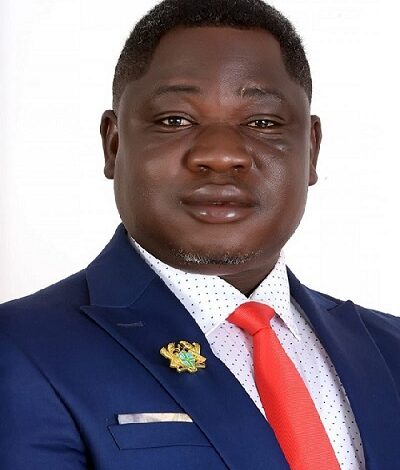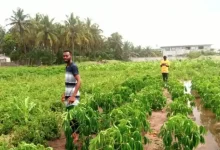
The Deputy Minister of Sanitation and Water Resources, Amidu Issahaku Chinna, has given the assurance that government is working hard to ensure uninterrupted water supply to citizens across the country.
He, however, said the epileptic water supply in the country could partly be blamed on pollution caused by human activities.
Mr Chinna, in a statement to mark this year’s International Water Day in Parliament, Accra, said pollution of water on the surface of the earth posed great risk to Ghana’s ground water.
The day is observed annually on March 22, to highlight actions needed to tackle water crisis was on the theme: “Groundwater, making the invisible visible.”
According to Mr Chinna, who is also Member of Parliament for Sissala East, it had become more important to end water pollution because “pollution on the surface of the earth poses great risk to our underground water.”
He said as a result of the pollution, the cost of producing safe drinking water has increased, making it difficult for water treatment agencies to keep pace with demand.
“The turbidity of the raw water makes it very expensive to treat. It is becoming expensive to maintain the equipment in treating water because of the high turbidity of our raw water,” Mr Chinna stated.
“Treatment plants are not spared the brunt of power outages which affects the regularity of supply to households,” he added.
Mr Chinna said government was working fervently to improve on water provision across the country.
He estimated that one million people in the Greater Accra Metropolitan area would be connected to the national grid when the phase II of the Kpong Water Project is completed.
“The ministry is working hard to ensure that enough water is produced to Accra residents when the expansion project is completed. This will go a long way to resolve the water challenges consumers are facing in Accra.” Mr Chinna said.
He said water projects were being executed in different parts of the country and when completed, would supply potable water to hundreds of thousands of Ghanaians.
Mr Chinna mentioned the Upper East water supply project, expected to serve 347,000 people and the Wa water supply project, expected to benefit 69,000 people, the five district water supply scheme to serve 224,000, rural communities and small town water supply project to serve 182,000.
The rest are the Damango water supply project, 80,000; Yendi water supply project, 133,000, and the Weija water supply rehabilitation project, to connect 1,400 households and 50 stand pipes.
“The implementation of these projects is in line with government’s policy to ensure that Ghanaians enjoyed access to safe water,” Mr Chinna said.
His outfit, he said was undertaking an exercise with UNESCO to quantify Ghana’s underground water resources to achieve the Sustainable Development Goal Six.
BY JULIUS YAO PETETSI





